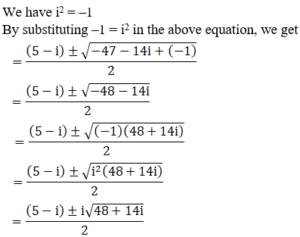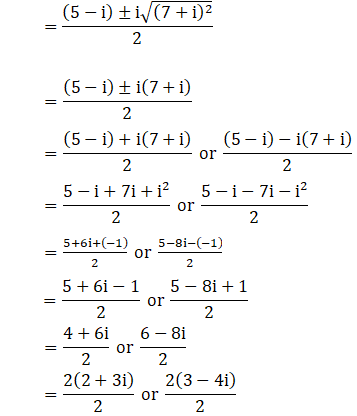(i) ![]()
![]()
![]()
![]()
![]()
![]() or
or ![]()
![]() or
or ![]()
![]() The roots of the given equation are
The roots of the given equation are ![]()
(ii) ![]()
apply discriminant rule,

![]()
![Rendered by QuickLaTeX.com \[\begin{aligned} &x=\frac{-(-(5-i)) \pm \sqrt{(-(5-i))^{2}-4(1)(18+i)}}{2(1)} \\ &=\frac{(5-i) \pm \sqrt{(5-i)^{2}-4(18+i)}}{2} \end{aligned}\]](https://www.learnatnoon.com/s/wp-content/ql-cache/quicklatex.com-f56f8d909d88befc79589330b13d8fc1_l3.png)

8 + 14i = 49 – 1 + 14i
So,
48 + 14i = 49 + i2 + 14i [∵ i2 = –1]
= 72 + i2 + 2(7)(i)
= (7 + i)2 [Since, (a + b)2 = a2 + b2 + 2ab]
By using the result 48 + 14i = (7 + i) 2, we get

x = 2 + 3i or 3 – 4i
∴ The roots of the given equation are 3 – 4i, 2 + 3i
